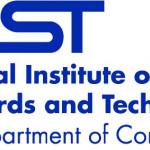- Отрасли: Technology
- Number of terms: 2742
- Number of blossaries: 0
- Company Profile:
The National Institute of Standards and Technology (NIST) — known between 1901 and 1988 as the National Bureau of Standards (NBS) — is a measurement standards laboratory and a non-regulatory agency of the United States Department of Commerce. The institute's official mission is to promote U.S. ...
The change from one state to another in a finite state machine. Analogously, an edge in a directed graph.
Industry:Computer science
The change from one state to another in a finite state machine. Analogously, an edge in a directed graph.
Industry:Computer science
The change from one state to another in a finite state machine. Analogously, an edge in a directed graph.
Industry:Computer science
The class of languages for which a membership computation by a probabilistic Turing machine halts in polynomial time with no false acceptances or rejections, but randomly some "I don't know" answers. Formal Definition: For a language, S, there exists a probabilistic Turing machine, M, that halts in polynomial time. M (correctly) accepts or rejects the string or, randomly, halts in an "I don't know" state.
Industry:Computer science
The class of languages for which a membership computation by a probabilistic Turing machine halts in polynomial time with the right answer (accept or reject) at least 2/3 of the time.
Industry:Computer science
The class of languages for which a membership computation by a probabilistic Turing machine halts in polynomial time with the right answer (accept or reject) at least 2/3 of the time.
Industry:Computer science
The class of languages for which membership can be determined in polynomial time by a probabilistic Turing machine with no false acceptances and less than half false rejections. Formal Definition: For a language, S, there exists a probabilistic Turing machine, M, that accepts or rejects any string in polynomial time. If w ∉ S, M rejects w. If w ∈ S, M accepts w with a probability at least 1/2.
Industry:Computer science
The class of problems having constant-factor approximation algorithms, but no approximation schemes unless P=NP.
Industry:Computer science
The classes of languages accepted by k-alternating Turing machines, over all k≥ 0 and with initial state existential or universal. The bottom level (k=0) is the class P. The next level (k=1) comprises NP and co- NP.
Industry:Computer science
